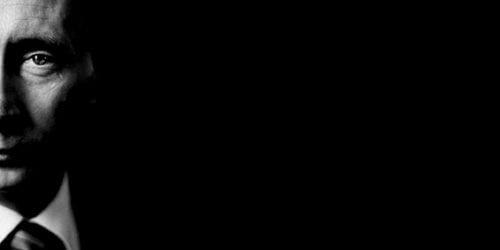
A quick glance at the table of contents of The Man Without a Face: The Unlikely Rise of Vladimir Putin, makes clear that author Masha Gessen has strong feelings about her subject. Chapter Seven is titled “The Day the Media Died”, chapter nine—“Rule of Terror” and chapter ten—“Insatiable Greed”. Neutral is not a word anyone would use to describe this book.
The book opens with the death of Galina Starovoitova; more specifically, it relates how Gessen learned of Starovoitova’s death and her reaction to it:
”If this book were a novel, my character probably would have dropped everything upon hearing the news of her friend’s death and… would have rushed off to do something—anything to give the moment its due. In real life, we rarely know when our lives are changed irrevocably or how to act when tragedy strikes. I went shopping for bathroom fixtures for my new apartment.”… “I never found out who ordered the killing of Galina Starovoitova…Nor did I find out why…It was impossible to determine what had gotten Starovoitova killed… I had been to many war zones, I had worked under shrapnel fire, but this was the most frightening story I ever had to write: never before had I been forced to describe a reality so emotionless and cruel, so clear and so merciless, so corrupt and so utterly void of remorse… Within a few years, all of Russia would be living inside this reality. How that came to be is the story I will tell in this book.”
In many ways, these opening passages tell us everything we need to know about The Man Without a Face. At times, the book does feel more fiction, perhaps a political thriller or a spy story, than nonfiction. At times, the numerous references to conspiracy theories bring to mind films with Mel Gibson or Matt Damon, or perhaps, with Gessen’s detailed analysis of Putin’s childhood, a psychological thriller. At times, such as when Gessen describes the massacre of children or the bombing of buildings, it would be nice if the book was a work of fiction.
Perhaps more importantly, this opening section tells us that this is personal. Without a doubt, Gessen is a respected journalist and a powerful writer. Growing up and currently living in Russia, Gessen can provide first-hand accounts of many of the incidents. Still, the book closes with almost a dozen pages of footnotes indicating that Gessen did her research, and she often describes situations that are, at least in part, a matter of public record such as: the Kursk submarine tragedy; the Moscow theater siege in 2002; election results; Alexander Litvinenko’s mysterious illness and subsequent death in 2006; and of course, George W. Bush’s comments that he looked Putin “in the eye” and “was able to get a sense of his soul”. However, there’s still no doubt, particularly because Gessen doesn’t do anything to hide her opinions about Putin, that she has an agenda.
So the question then becomes is Gessen right? Is Putin the man she describes? Is he a “hoodlum turned iron-handed ruler”? Is he working with terrorists? Is “The simple and evident truth… that Putin’s Russia is a country where political rivals and vocal critics are often killed, and at least sometimes the order comes directly from the president’s office” really that simple and evident?
Despite her obvious contempt for Putin, Gessen doesn’t seem to be making random accusations and does make some pretty convincing arguments. For example, she notes “The story of how Putin came to work for Anatoly Sobchak during his tenure as the chairman of the Leningrad City Council is well-known, often recounted, and most certainly untrue in many or all of its best-publicized details” and goes on to compare interviews with Putin and Sobchak that clearly show the inconsistencies in their accounts of this event. When describing Sobchak’s death, Gessen cites local sources, which claim that “two different autopsies had been performed on the body” and that even though the “official cause of death was a massive but natural heart attack… ten weeks following Sobchak’s death, the prosecutor’s office… opened an investigation into a possible case of ‘premeditated murder with aggravating circumstances’”. The case was closed three months later “without a finding”, but to add to the mystery, two of Sobchak’s bodyguards had “to be treated for mild symptoms of poisoning following Sobchak’s death”.
The book ends with a prologue that details the first week in December 2011. With comments such as “I feel like something is in the air” and with references to celebrating “no more Putin”, it shows a much more optimistic Gessen. After 250 or so pages of stark reality, frustration, and hopelessness, the tone of this section is almost jolting and perhaps not the best conclusion to the book. It’s also simply a little sad — because Gessen’s hope now seems unfounded.
The Man Without a Face is not a biography with neatly detailed factual accounts. In fact, it’s not a biography at all: it’s an eye opening story with all the drama and intrigue of a novel. Unfortunately, the violence and despair are all too real.

![Call for Papers: All Things Reconsidered [MUSIC] May-August 2024](https://www.popmatters.com/wp-content/uploads/2024/04/all-things-reconsidered-call-music-may-2024-720x380.jpg)



